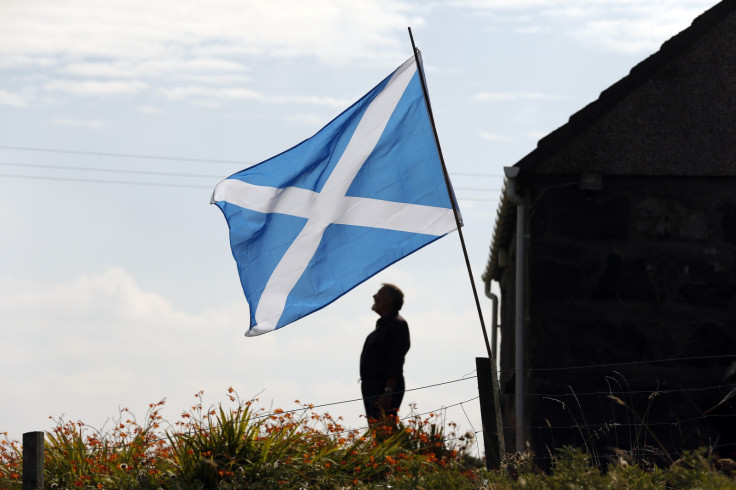Why Scottish Independence Means More Austerity and Welfare Cuts

What's the point of Scottish independence? For many campaigners the answer seems to be this: to shake off governance from London – i.e. Tory rule – and run society from a profoundly left-wing platform.
It also seems to be based on the rejection of the austerity the UK is currently experiencing as part of Chancellor George Osborne's regime of public spending cuts to balance the Treasury's finances.
Scotland suffers particularly badly under this programme because it is, per person, more reliant on public spending than the rest of the UK.
In 2011/12, spending on public services for the benefit of Scotland was £7,932 per person, says the Institute for Fiscal Studies (IFS), 17% higher than across the UK. During the same period, benefit spending per person in Scotland was £3,238 a year, 2% above the UK as a whole.
And so many pro-independence campaigners are rallying against the cuts, Tory cuts, particularly the billions of pounds scythed from the welfare budget, a source of income upon which so many vulnerable people rely.
But herein's the problem with Scottish independence: it would mean deeper and longer austerity for Scotland.
If Scotland wants to reapply to join the European Union (EU), as SNP leader Alex Salmond is proposing, it will have to meet the strict rules for membership defined under the Maastricht Treaty.
And it will have to commit to – at some point in the future if not immediately – joining the eurozone currency area, something the UK originally secured an opt-out on. But an independent Scotland is not automatically entitled to, as a new country applying for membership, this opt-out.
One of the financial criteria under Maastricht is a maximum deficit in public finances equivalent to 3% of GDP.
Though the exact financial form an independent Scotland would take is yet to be decided, pending the outcome of the closely contested referendum, several deficit calculations have already been made.
According to the Scottish government, Scotland had a public budget deficit worth 11.2% of GDP in 2012/13 when you exclude revenue from the North Sea oil and gas fields. When you include the North Sea revenues, on a share calculated from a generous geographic basis, this falls to 5.8% of GDP.
There are two things to consider here. The first is that even with the North Sea revenues the SNP hopes it will get from independence, there is a lot of austerity needed to whittle down the deficit to meet the EU's standard.
Secondly, North Sea revenues are forecast to fall over the coming decades. Some forecasts are more optimistic than others, but they all agree on one thing – the numbers are going down. So this means Scotland would have to boost its GDP elsewhere. One way is to attract more businesses to the country by making the corporate tax system more competitive, aka cutting taxes for companies.
This has to be initially paid for by balancing out the reduced tax revenue against lower public spending. More cuts, in other words, to current spending – things like the welfare budget many pro-independence Scots want to protect and boost.
Most economists agree that an independent Scotland means more austerity for the country. These experts aren't just from a bunch of convenient and obscure wonk factories. They hail from the likes of the IFS, the National Institute for Economic and Social Research and the Office for Budget Responsibility.
It's easy for pro-independence campaigners to sell hopes and aspirations to a nation of people who have suffered the brunt of the UK government's public spending cuts, be they Margaret Thatcher's in the 1980s or David Cameron's today.
But it's also cynical for those in the know, including the SNP, to exploit this anger for their own political gain by selling this cheap false hope to Scots.
There is no Land of Milk and Honey awaiting Scots on the other side of the independence referendum, be it a yes or a no victory.
Staying in the UK means more austerity, but so does independence. And independence also means economic uncertainty and diminished political power.
At least in the UK there is an established economic, financial and political framework, one that is globalised and wields power and influence at the world's top table, from which Scotland can – and should – enjoy more spoils.
Aren't we better to shoulder the burden of difficult economic decisions together as a United Kingdom so we can also share in the prosperity as one too?
© Copyright IBTimes 2025. All rights reserved.






















